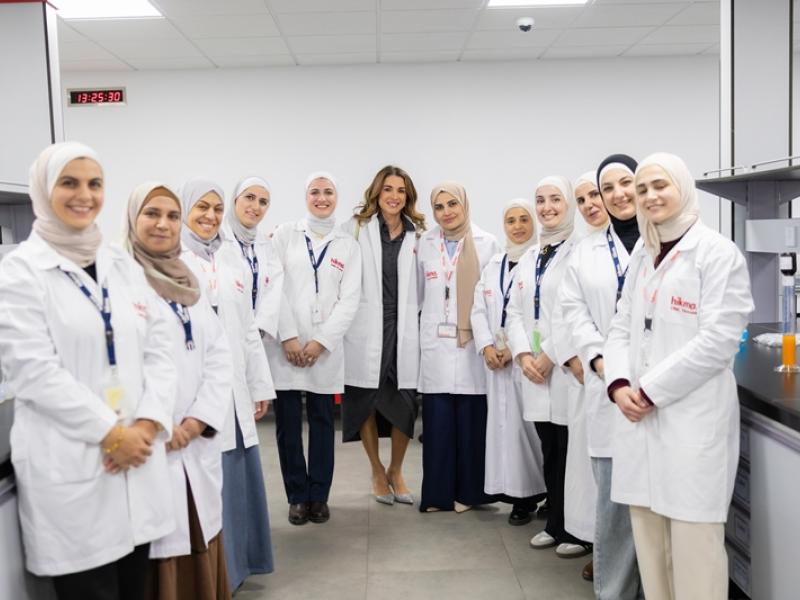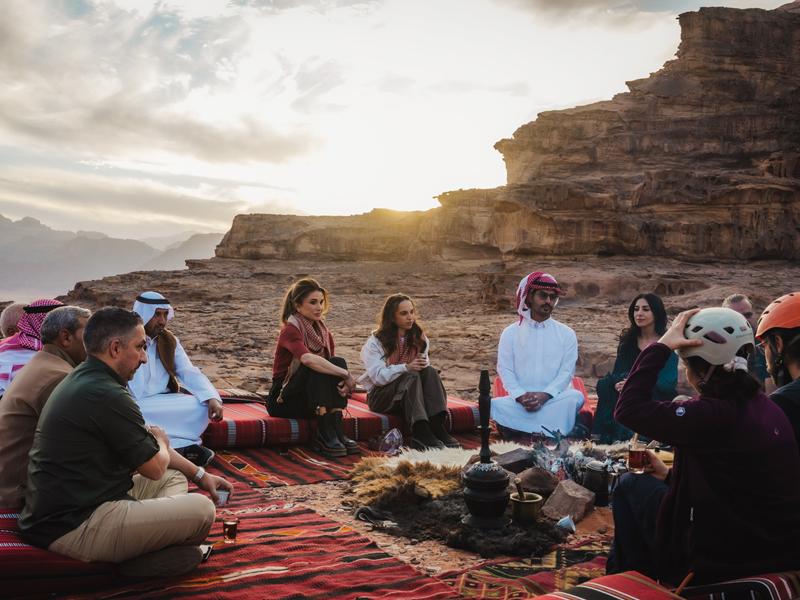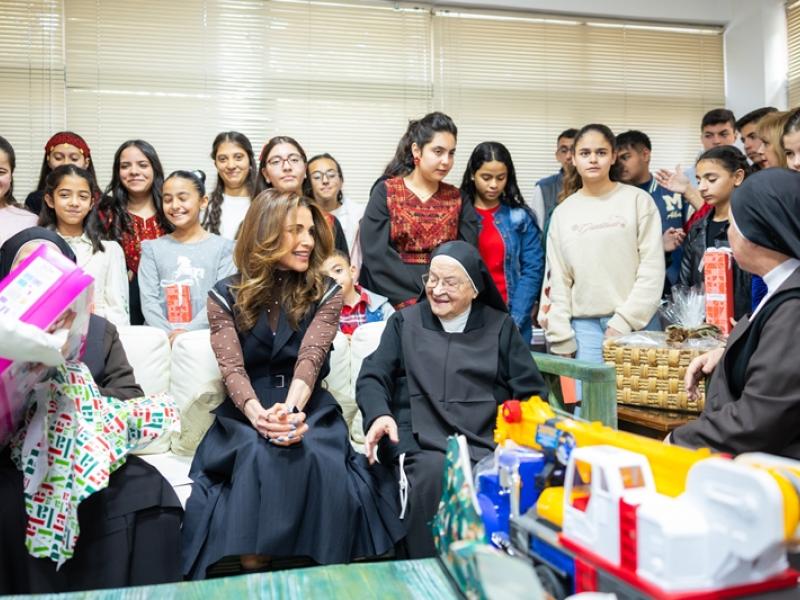(Office of Her Majesty, Press Department - Amman) Her Majesty Queen Rania Al Abdullah underlined that dialogue is a vital tool that enables people to connect and reach out to each other in a spirit of common understanding, frank exchange, and goodwill.
Queen Rania’s remarks came in meetings with H.E. Ms. Mary Robinson, former UN Commissioner for Human Rights and H.E. Dr. Mervat Tellawi, ESCWA Executive Director, who addressed the opening session of the first meeting of Cross-Cultural Dialogue organised by the Jordanian Executive Committee for the Arab Women’s Summit.
Queen Rania, a strong advocate of cross-cultural dialogue, has been outspoken not only on the need for an East-West dialogue to enhance further understanding, respect of different cultures, and building bridges between people, but also on the need to institutionalize the dialogue, and achieve sustainable development with tangible results.
The first meeting for Cross-Cultural Dialogue, a project spearheaded by Queen Rania, President of the Second Arab Women’s Summit, brought together participants of the Euro-Mediterranean Forum of Women Parliamentarians which was held in Amman October 20-21, as well as representatives of the Second Arab Women’s Summit member states, leading Jordanian women from different fields, and representatives of international organizations.
In her keynote speech, Ms. Robinson noted while it was a difficult time for women in the Arab World, it was also a time of profound change, underlining that despite the wealth in the region, the economies and political systems in the Arab World had not advanced as they should have because of the lack of status and participation by women.
She noted as the post September 11 era had split the word along cultural lines, women are caught in the crux of this conflict as they often have little voice as to how their culture is defined.
“We should not accept at face value an assertion that a human rights violation is justified in the name of culture,” she said, adding “the problem arises when one culture is considered the model for an ethical subject.”
Participants in the two sessions of the meeting discussed the role of cultural heritage and values in the participation of women in sustainable development, tapping into the major challenges facing efforts to empower women, causes of gender inequality and its impact on the overall development of a country.
The sessions also touched upon the role of civil society institutions in promoting women’s participation in sustainable development, and drew up a framework of mechanisms and programs to ensure sustainability and continuity of such a dialogue in the future to be able to act as a tool for future links with regional and international initiatives.
Ms Robinson referred to human rights and how women can impact concepts governing their lives by exposure and discussion of problems, like violence against women, as a first step to identify the issues and work on the solutions. She said the recognition that all rights, including cultural rights, have limits will allow us to embrace cultural diversity, which is a source of strength and resources.
“Cultural diversity must be seen as s positive value. We must resist attempts to suggest a clash of civilizations.” In her speech, Ms. Tellawi said “the real problem lies not within the civilizations, but the fact that we do not know each other and have not given ourselves the chance to communicate and understand each other’s culture.”
Dr. Ruwaida Ma’ayta, head of the Jordanian Executive Committee for the Arab Women’s Summit underscored Queen Rania’s efforts in bolstering cross-cultural dialogue to bridge the gaps and change misconceptions while working towards reinforcing women’s role in sustainable development.
As president of the Arab Women’s Summit from 2002-2004, Queen Rania is spearheading three main projects focusing on cross-cultural dialogue between Arab women and their counterparts from other regions, Arab media in support of women's issues, and the establishment of an Arab women’s website.


